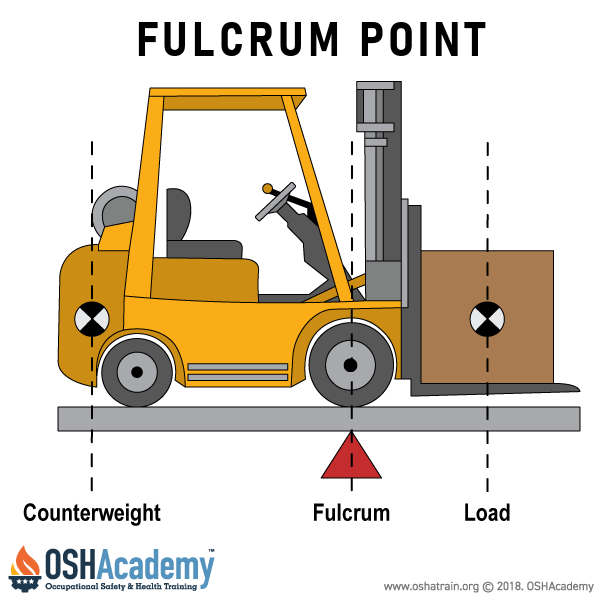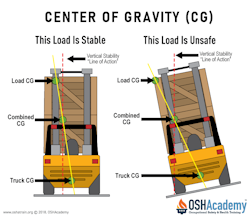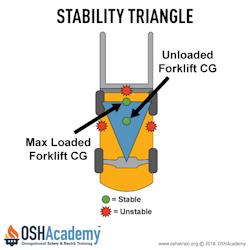Forklift Stability
Forklift stability is of utmost importance for safe and efficient operation of the forklift. A stable forklift ensures that the load is carried safely and efficiently, minimizing the risk of tipping over.
Forklift stability is determined by four important factors:
- The Fulcrum Point: The fulcrum point is the pivot point of the forklift where the weight of the forklift and the load it carries are balanced.
The Center of Gravity: The center of gravity is the point on the forklift where the weight is evenly distributed and concentrated. The position of the center of gravity changes as the load is lifted or moved.
If the combined center of gravity moves outside of the stability triangle, the forklift tends to tip sideways (Open link below.)Factors that cause a forklift to tip sideways are:
- excessive speed while turning
- turning with an elevated mast
- sloping surfaces
- slick surfaces
- uneven terrain
- tight turns
- shifting or off-center loads
- turning sideways on ramps
- The Stability Triangle: The stability triangle is the area on the ground formed by the two front wheels and the center of the rear axle. It is important to keep the load within this triangle to maintain forklift stability.
The Load Center: The load center is the center of gravity of the load being carried by the forklift. It is important to know the load center when lifting a load to prevent the forklift from tipping forward (Open link below).
Factors that cause a forklift to tip forward are:
- sloping surfaces
- overloading
- inappropriate use of attachments
- traveling down ramps with the load forward
- heavy braking
- moving with an elevated mast
- forward-tilting elevated mast
- shifting or off-center loads
Knowledge Check Choose the best answer for the question.
7-4. Which point on a forklift is the location where all the weight is concentrated?
You forgot to answer the question!




